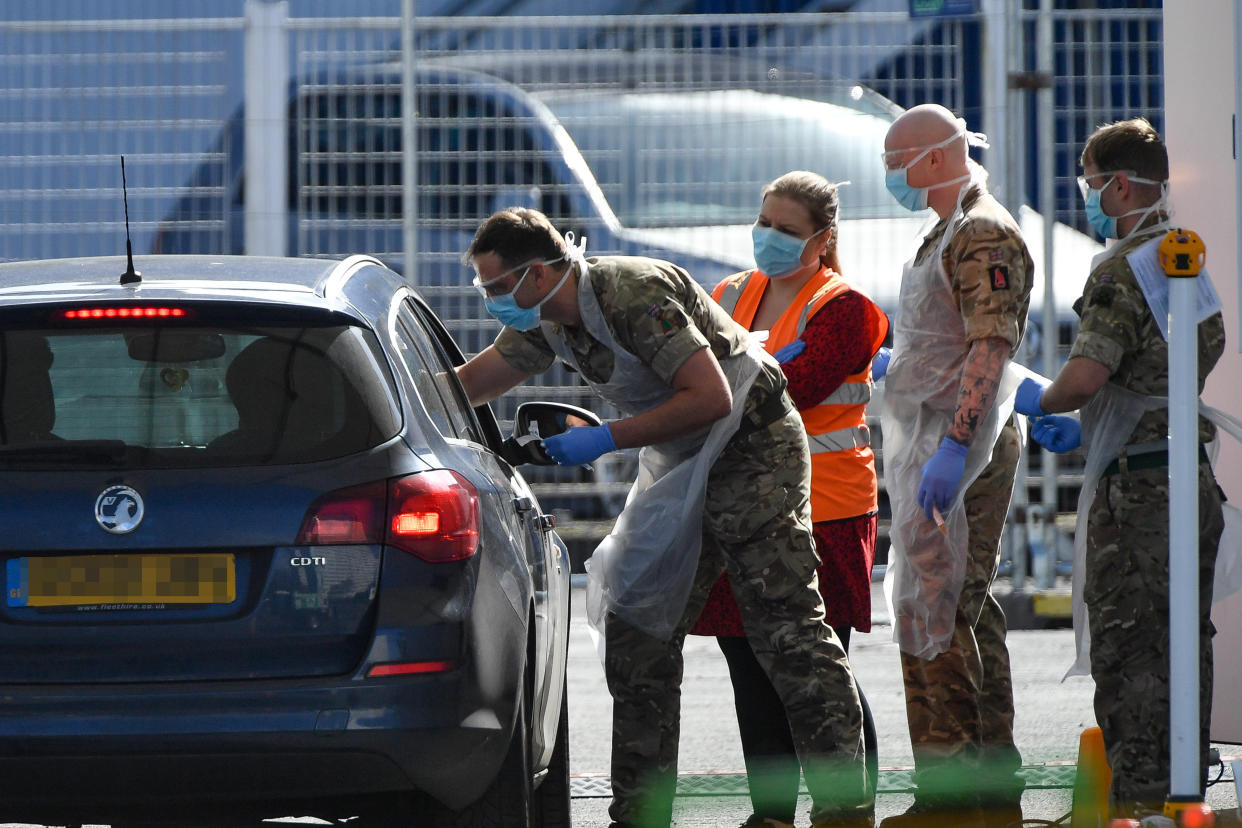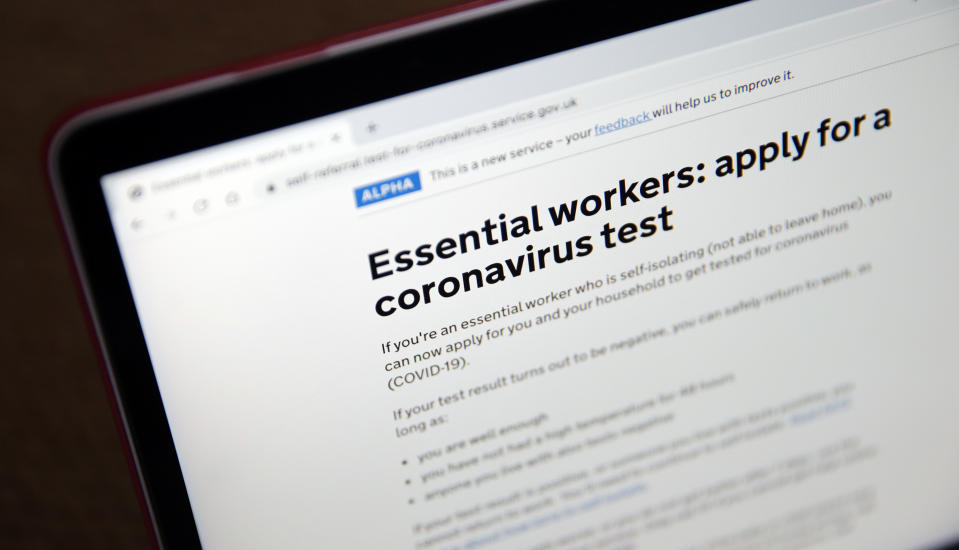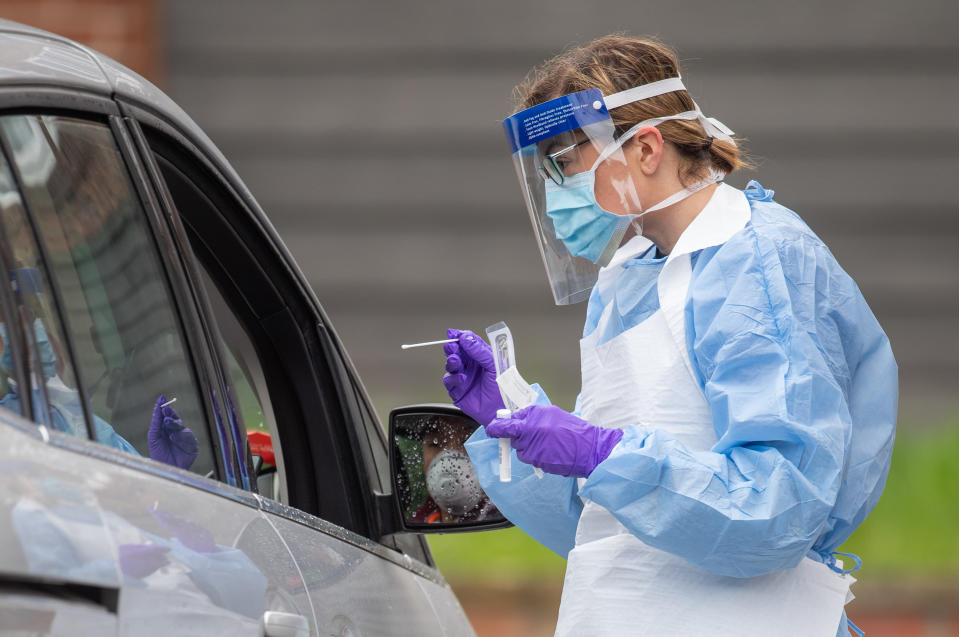Coronavirus: The 16 towns where mobile coronavirus testing sites have been set up

Several pop-up facilities have been set up across the UK as the government scrambles to hit its 100,000 per day coronavirus testing target.
With just days left until the government’s self-imposed deadline of 1 May, just 37,024 tests were carried out on Sunday - well short of the total.
In a last-ditch effort to hit the 100,000 figure, so-called “mobile testing units” have been set up in recent days and run by military personnel.
The mobile units are located in “hard to reach” areas of Britain and are designed to “travel to offer tests where they are needed”, according to the government.
But how do you get a test and who is eligible to apply?

Who is eligible for a test?
The government is prioritising testing patients so they can be given urgent medical treatment if their condition deteriorates.
But last week health secretary Matt Hancock announced “essential workers” with symptoms would also be eligible for the tests.
People who live with essential workers are also eligible for testing.
A list jobs carried out by people considered “essential workers” can be found on the government’s website.
Hancock announced on Tuesday that all those with coronavirus symptoms aged over 65 and members of their households – as well as workers who have to leave home in order to do their jobs and their households – would also be eligible for testing from Wednesday onwards.
How do you apply?
Essential workers who work in England, Scotland and Northern Ireland can book a test for themselves by “self-referral” or their employers can book one on their behalf.
Those who are self-isolating can book a test directly through the government’s online booking portal.
They will be asked to select a regional test site, drive-through appointment or home test kit – although home test kit availability will initially be limited.

More than 7,000 of the 10,000 available coronavirus home testing kits were ordered in the first hour of availability from 8am on Tuesday, Downing Street said.
By 8am, 22,000 of the 26,000 available drive-through testing site appointments had also been booked, the prime minister’s spokesman said.
Where are the mobile testing sites?
There are now 16 operational military-run mobile testing sites: Torquay, Hereford, Boston, Salisbury, Bishop Auckland, Barnet, Northampton, Grimsby, Skegness, Blackpool, Macclesfield, Ramsgate, Harwich, Barnsley, Grantham and Kendal.
The Government hopes to have a total of 96 mobile testing facilities by the start of May.
As well as mobile testing units, tests are also being offered at drive-through regional testing sites, “satellite centres” being set up around hospitals, and NHS facilities themselves.
Why has the government set a target of 100,000 tests?
Hancock said the 100,000 daily tests promised by the Government would be enough for the “test, track and trace” plan which would be part of the next stage of the coronavirus response.
“The lower the number of new cases, the more effective a system of test, track and trace of any scale is.
“Therefore, 100,000 tests a day is a big enough testing system to start test, track and trace, but if it is bigger then the system can work on a higher number of cases and be more effective.”
Coronavirus: what happened today?
Click here to sign up to the latest news, advice and information with our daily Catch-up newsletter


